During the 7th and 8th July at FORTH in Patras, Greece, the Numerical Modeling of PFAS fate in Subsurface Workshop took place. The first day was open to everyone while on the second day the consortium gathered together at close doors to discuss next actions.
The PFAS research workshop opened with GEO Subsurface Expertise presenting their multiscale geological modelling of the Korsør site, which established the fundamental geological framework necessary for understanding contaminant transport by integrating detailed stratigraphic analysis, hydrogeological characterization, and three-dimensional subsurface architecture mapping to create a comprehensive foundation for all subsequent contamination studies.
The PFAS research workshop continued with a comprehensive presentation by the GEO/BGU team on PFAS distribution in soil and water samples of the vadose zone and groundwater in Korsør site, where they demonstrated how their innovative VMS-approach revealed complex contamination patterns throughout the subsurface environment, showing significant spatial variability in PFAS concentrations that challenged conventional understanding of contaminant transport in heterogeneous geological formations.
Following this field-based investigation, BGU presented their laboratory experiments in large columns and parameter estimation work, which provided controlled experimental validation of the transport mechanisms observed in the field, successfully deriving critical parameters for PFAS mobility through systematic breakthrough curve analysis and demonstrating how laboratory-scale findings could be scaled up to predict field-scale behavior with quantified uncertainty bounds.
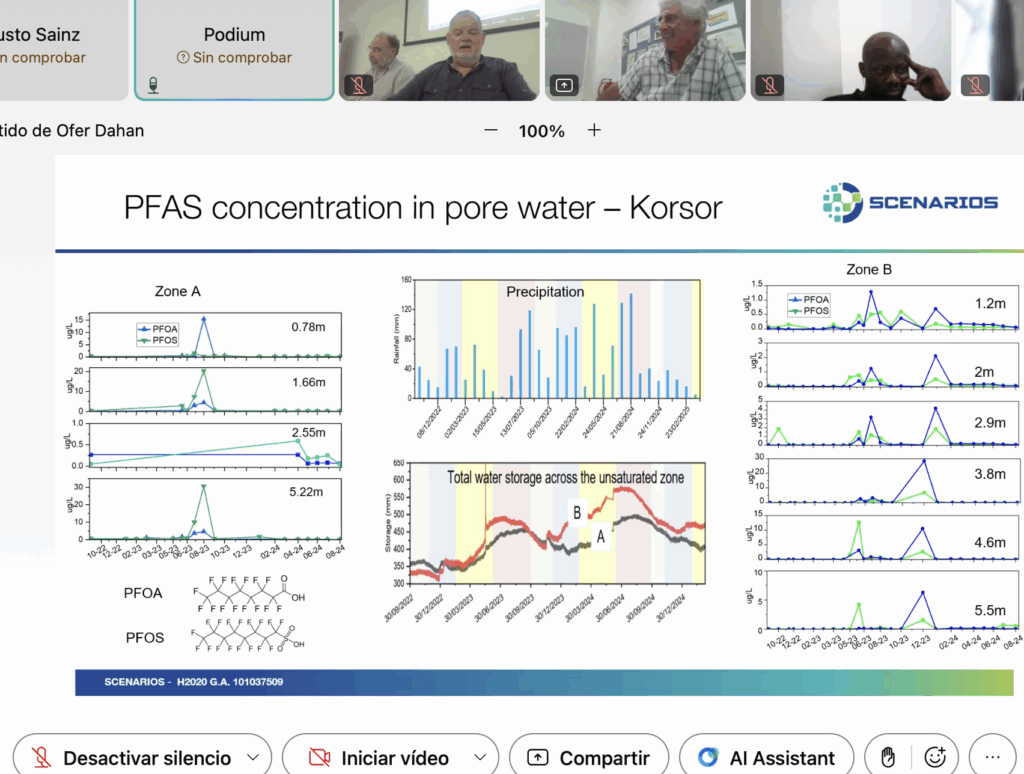
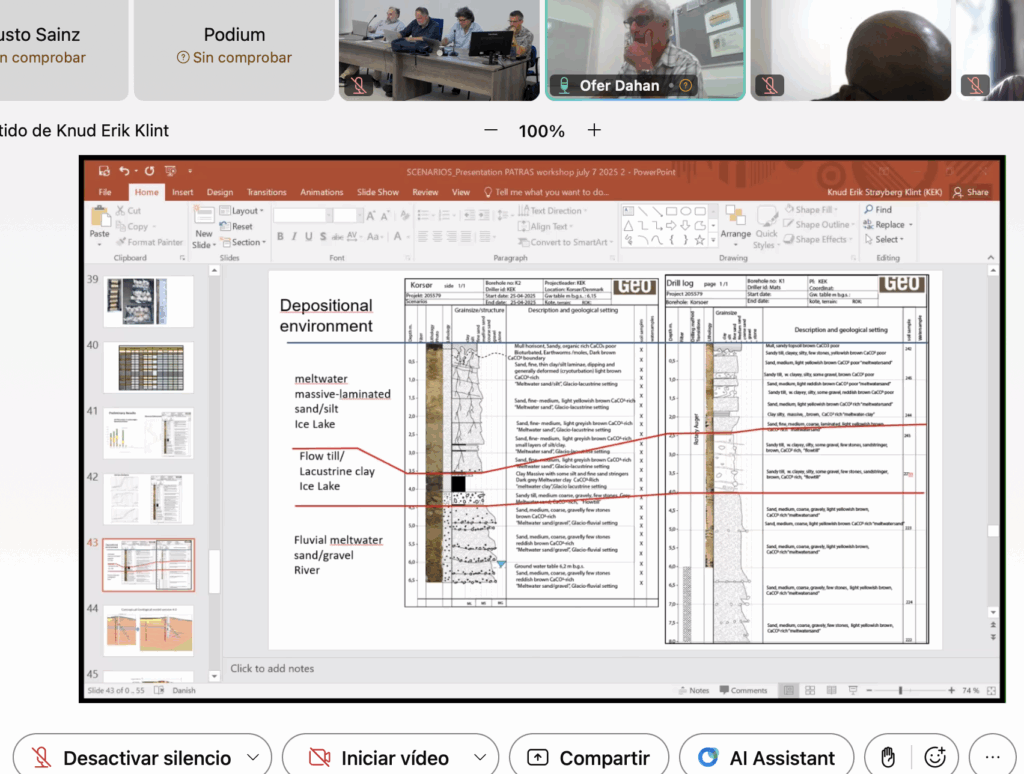
The workshop then transitioned to FORTH’s presentation on numerical modeling of PFAS fate in Korsør site, where sophisticated computational models were calibrated against the field data to create predictive tools capable of forecasting long-term contamination scenarios, revealing that current PFAS plume migration patterns would likely persist for decades without active remediation interventions.
Building upon the site-specific modeling work, DTU delivered their presentation on numerical modeling of PFAS fate in other sites, which demonstrated the transferability of modeling approaches across different geological settings while highlighting the critical importance of site-specific parameterization for accurate predictions, ultimately establishing a framework for regional-scale PFAS fate assessment.
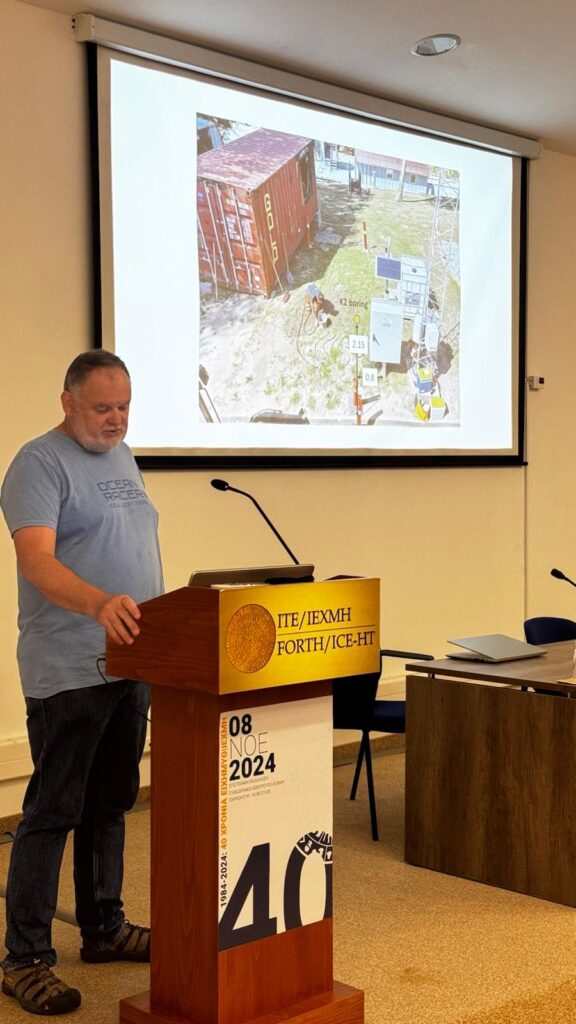
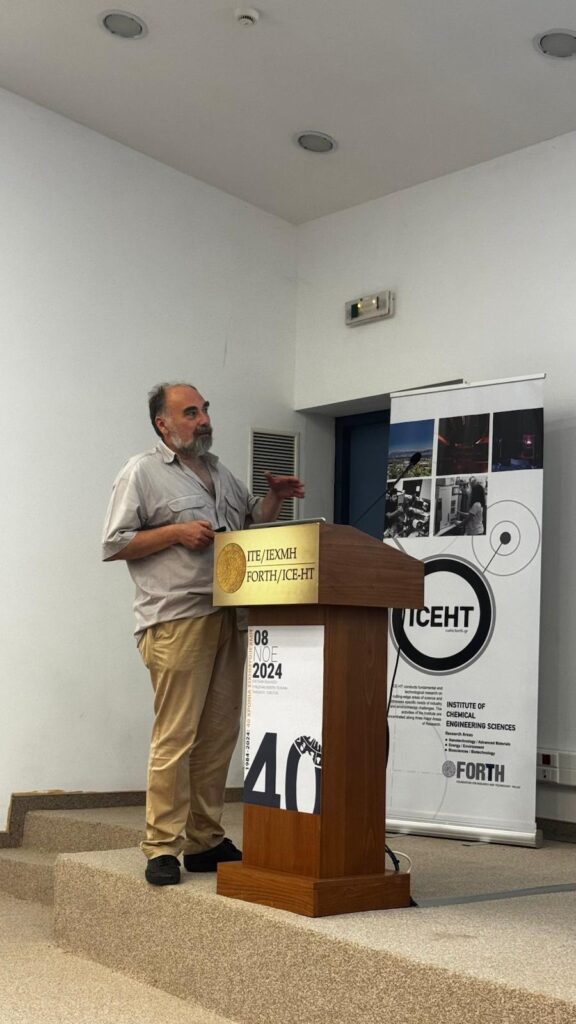
The technical presentations culminated in a collaborative session on parameter estimation from sample analysis in Korsor site, where GEO, DTU, and FORTH researchers synthesized their complementary approaches to create a unified parameter database that reconciled field observations, laboratory measurements, and modeling results into a coherent understanding of PFAS behavior in the subsurface environment.
The workshop concluded with an interactive session designed specifically for early-stage researchers, titled “From data to insight: what did we learn today?”, which challenged participants to integrate the day’s findings into practical research applications while fostering collaborative discussions about future research directions and methodological innovations in PFAS contamination assessment and remediation.
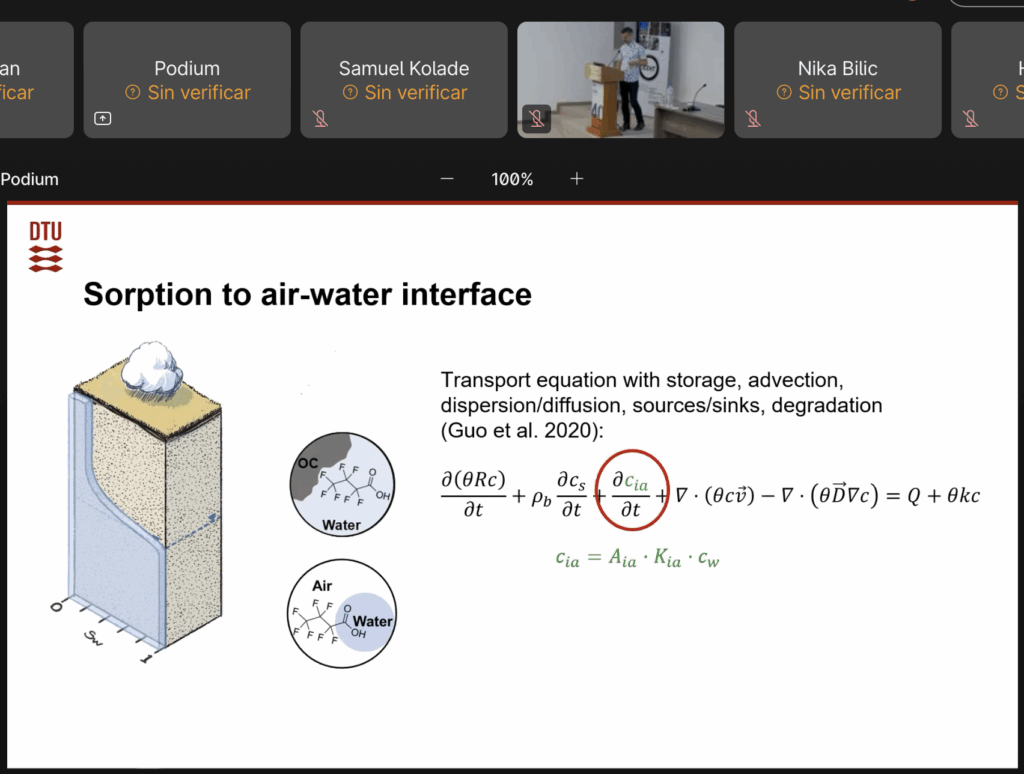
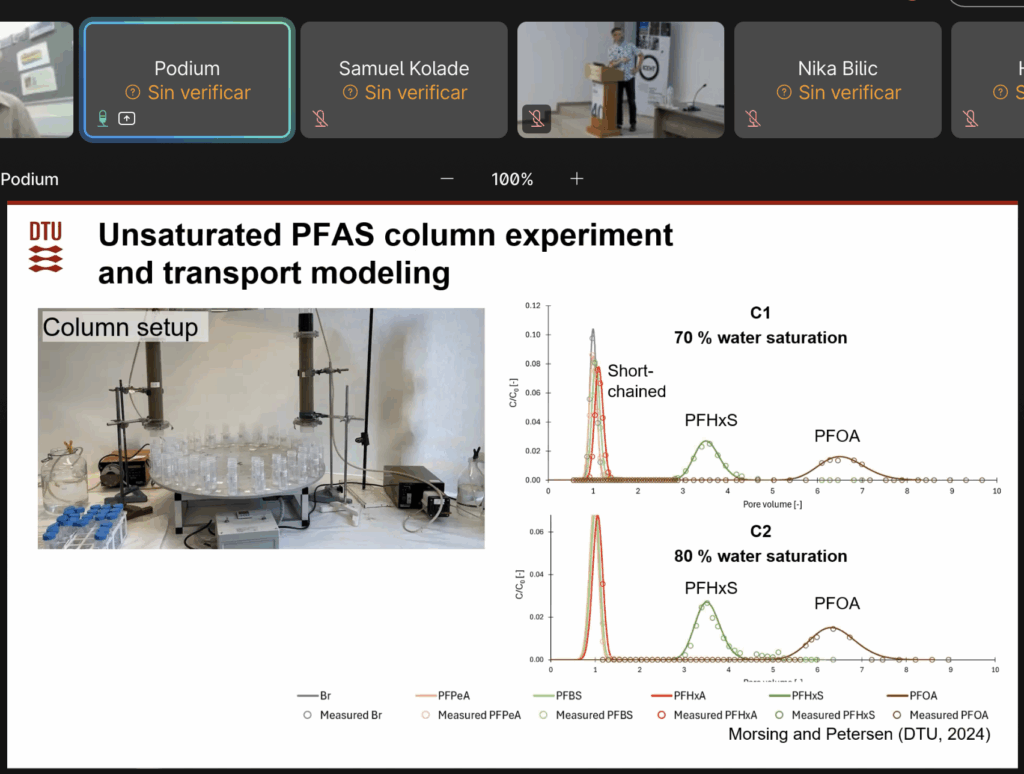
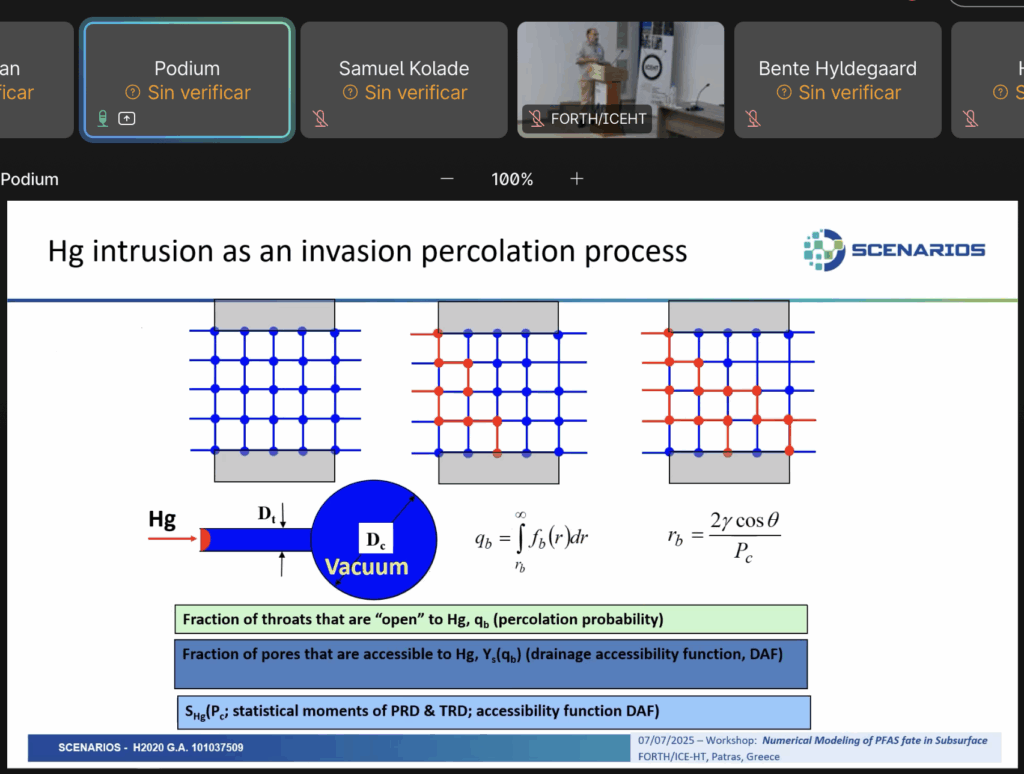
Useful discussions were held on the results of laboratory and field experiments and methodologies for simulating the migration of PFAS toward the groundwater of the Korsor Site, in the context of the implementation of work package WP3 of the Scenarios project. The next steps were defined for a simulation of the spatial variation of water saturation with time and the fate of PFAS in the unsaturated zone of the Korsor Site as accurately as possible. Possible publications that will arise in the next period of time were also outlined. UPO was also responsible in the for the early stage researchers inclusion were 12 PhD students attended the meeting either online or remotely.
We are looking forward to the next important workshop to be held in Ferrara under RemTech 2025 to be held on the 17th September in Ferrara Italy. Join us for more of the SCENARIOS results.
